What is a Multisig Wallet and How it Works?

In the world of cryptocurrencies, security is paramount. With digital assets' increasing value and prevalence, investors and organizations are constantly seeking ways to protect their holdings from potential threats.
One such security tool that has gained significant attention is the multisig wallet. This comprehensive guide will explore what a multisig wallet is, how it works, the different types available, the advantages and disadvantages, and the safety measures associated with these wallets.
What is a Multisig Wallet?
A multisig wallet, also known as a multi-signature wallet, is a type of cryptocurrency wallet that requires multiple signatures to execute a transaction.
Unlike traditional wallets that rely on a single private key, multisig wallets distribute the signing authority among multiple parties. This means a defined threshold of signatures is needed to validate and authorize any transaction.
The workflow of a multisig wallet remains the same regardless of the number of signers. Any party involved in the wallet can initiate a transaction by signing it with their private key. However, the transaction remains pending until it receives the required additional signatures.
Multisig wallets can be configured in different ways. One standard setup is the N-of-N configuration, where all signatories must validate a transaction.
For example, a 2-of-2 multisig wallet requires both parties to sign a transaction to be considered valid. Another configuration is the N-of-M setup, where a specific subset of signers must approve a transaction.
In a 3-of-4 multisig wallet, three out of the four signers must validate the transaction for it to be executed.
To ensure maximum security, it is crucial to distribute the multisig private key access among distinct entities. Storing multiple private keys in a single location undermines the purpose of a multisig wallet, as it creates a single point of failure.
The ideal scenario is to grant access to entities so that a single security breach does not result in the loss of multiple keys.
How Does a Multisig Wallet Work?
The concept of a multisig wallet revolves around using multiple private keys to authorize transactions. Users sign a transaction with their private key when they initiate it. The transaction is then broadcasted to the network as pending, awaiting additional signatures.
Once the required number of signatures is obtained, the transaction is considered valid and can be executed on the blockchain. This process ensures that no single party has complete control over the wallet and eliminates the risk of a single point of failure.
Let's consider an example to understand better how a multisig wallet works. Imagine a 2-of-3 multisig wallet with three signers: Alice, Bob, and Carol. When Alice wants to send funds from the wallet, she signs the transaction with her private key. The transaction is then marked as pending.
To complete the transaction, Bob and Carol must also sign it with their respective private keys. Once all three signatures are obtained, the transaction is valid and can be executed on the blockchain.
Multisig wallets can be implemented on various blockchains, and many cryptocurrency exchanges and custodians offer multisig wallet services to enhance the security of their client's assets.
Types of Multisig Wallets
Multisig wallets come in different configurations to cater to various needs and use cases. Here are some common types of multisig wallets:
1-of-2 Signatures
A 1-of-2 multisig wallet is one of the simplest forms of multisig storage. In this setup, two private keys are bound to a single wallet, and either key can approve transactions.
This configuration is often used in small businesses where two founders want equal control over the funds. It can also be a personal backup solution, as users can recover funds even if one private key is lost.
2-of-3 Signatures
A 2-of-3 multisig wallet requires two out of three registered signers to complete a transaction. This configuration is commonly used for escrow transactions, where a trusted third party holds one of the keys.
Cryptocurrency custodians also implement this type of wallet as an additional security measure. They may hold two keys, one stored securely offline and the other held online for more effortless signing.
The third key is delegated to a trusted blockchain security company, which acts as a safeguard in case one of the custodian's keys is lost.
3-of-5 Signatures
A 3-of-5 multisig wallet is a more robust configuration that requires three out of five signatures to validate transactions. This setup is functional in corporate structures where several decision-makers must approve fund transfers.
The transaction can be approved if over 50% of the parties agree. Distributing the signatures among entities in diverse geographical locations enhances security.
Hosted vs. Unhosted
Multisig wallets can be categorized as hosted or unhosted. A hosted multisig wallet is created on a third-party platform like Coinbase Custody or BitGo.
These platforms provide institutional-grade security solutions and offer clients access to multisig functionality. Clients can register approved signatories and define signature thresholds for fund transfers.
On the other hand, an unhosted multisig wallet, also known as a self-hosted wallet, is where the individual or organization holds the private keys without relying on a trusted third party.
Unhosted wallets generally require more complex setup processes and infrastructure optimization for security. However, they offer greater convenience and eliminate the counterparty risk associated with third-party custodians.
Advantages of Multisig Wallets
Multisig wallets offer several advantages, making them attractive for users seeking enhanced security and control over their digital assets. Let's explore some of the key advantages:
1. Increased Security
One of the primary benefits of using a multisig wallet is its heightened security. By requiring multiple signatures to authorize transactions, multisig wallets reduce the risk of a single point of failure.
Each signer holds a unique private key, making it difficult for hackers to gain unauthorized access to the wallet. Even if one private key is compromised, the funds remain secure as the hacker still needs access to the other keys to complete any transaction.
Multisig wallets also offer a backup option. If one or more private keys are lost, as long as the setup does not require all signatures to validate transactions, users can quickly recover their wallets. Additional signatures can be added to distribute ownership further and improve security.
2. Escrow Transactions
Multisig wallets are ideal for escrowed transactions, where a neutral third party holds funds until predefined conditions are met. With a multisig wallet, parties can ensure all obligations are fulfilled before releasing the funds.
For example, a buyer could deposit funds into a multisig wallet, and the seller would only receive the funds once the purchased goods are received and deemed satisfactory. The presence of a trusted third-party signatory adds an extra layer of security and prevents either party from breaching the contract terms.
3. Two-Factor Authentication (2FA)
Multi-signature wallets provide a form of two-factor authentication (2FA) for cryptocurrency transactions. To validate any pending transaction, eligible signers must provide their signatures.
This feature adds an extra layer of security, ensuring that only authorized parties can authorize fund transfers. In the event of unauthorized access to a private key, users can easily revoke access and prevent any malicious actor from completing transactions.
4. Cooperation Between Multiple Parties
Multisig wallets are particularly useful in organizational setups where multiple parties must collaborate and make joint decisions.
In decentralized autonomous organizations (DAOs) and corporate structures, multisig wallets can ensure that no single party has unchecked control over the funds.
All parties involved must provide their signatures to authorize a transaction, promoting accountability and preventing any single entity from making unauthorized transfers. Additionally, the signing of a transaction can also serve as a form of voting, representing approval of a business decision.
Disadvantages of Multisig Wallets
While multisig wallets offer increased security and control over digital assets, they also have drawbacks. It's essential to consider these disadvantages before deciding to use a multisig wallet:
1. Transaction Speed
One of the trade-offs of using a multisig wallet is the potential decrease in transaction speed. Compared to regular wallets, multisig wallets can introduce delays, requiring multiple signers to validate a transaction.
The time it takes to complete a transaction can vary depending on the number of signatories and geographical boundaries. This limitation can make multisig wallets less convenient for emergencies or time-sensitive payments.
2. Technical Knowledge
Using a multisig wallet requires specific technical knowledge and familiarity with security practices. The setup process may involve consulting a third-party wallet provider, installing specific software, or purchasing dedicated equipment such as multiple hardware wallets and safe deposit boxes.
These requirements can be relatively complex for the average crypto investor and may hinder the widespread adoption of multisig wallets.
3. Fund Recovery and Custodian Risk
Compared to single-key storage, recovering funds stored in a multisig wallet can be more time-consuming and require additional coordination. In the event of a lost private key or unavailable signatory, the recovery process can be complex and may involve additional security measures.
Opting for a multisig wallet hosted by a third-party custodian also introduces counterparty risk. If the custodian experiences a security breach or fails to safeguard the private keys, it could have severe consequences for the wallet holders.
Are Multisig Wallets Safe?
While multisig wallets offer enhanced security features, it's important to note that they are not foolproof. No security measure can guarantee absolute protection against all possible threats.
However, when used correctly and combined with other security best practices, multisig wallets can significantly reduce the risk of unauthorized access and improve the overall security of digital assets.
To ensure the safety of your multisig wallet, it's crucial to follow these best practices:
- Choose a reputable wallet provider or implement robust self-hosted security measures.
- Carefully select the signatories and distribute the private keys among different entities in diverse locations.
- Regularly update and maintain the security infrastructure of the wallet.
- Keep backup copies of all private keys in secure and separate locations.
- Regularly monitor account activity and be vigilant for any signs of unauthorized access.
- Stay informed about the latest security vulnerabilities and follow industry best practices.
By following these guidelines, users can maximize the security of their multisig wallets and reduce the risk of potential breaches.
Frequently Asked Questions
Q1. What is the difference between a multisig wallet and a regular wallet?
A regular wallet relies on a single private key to authorize transactions, while a multisig wallet requires multiple signatures from different parties to validate transactions. This added layer of security makes it more difficult for unauthorized individuals to gain control over the funds.
Q2. Can I use a multisig wallet for personal use?
Yes, multisig wallets can be used for personal use. They provide an extra layer of security for individuals who want to protect their digital assets from potential threats. However, the setup process and technical requirements may be more complex than regular wallets.
Q3. Can multisig wallets be hacked?
While no security measure is entirely immune to hacking, multisig wallets are significantly more secure than regular wallets. The distribution of private keys among multiple parties makes it more difficult for hackers to gain unauthorized access. However, it's essential to follow best practices and stay updated on the latest security vulnerabilities to minimize the risk of hacking.
Q4. Are multisig wallets suitable for small businesses?
Yes, multisig wallets can be beneficial for small businesses. They provide additional security and control over funds, especially when multiple founders or partners need equal control. However, it's essential to consider the technical requirements and potential trade-offs, such as transaction speed, before adopting a multisig wallet.
Q5. Can I recover my funds if I lose one of the private keys?
The ability to recover funds in the event of a lost private key depends on the specific setup of the multisig wallet. If the wallet does not require all signatures to validate transactions, it may be possible to recover the funds using the remaining keys. However, it's essential to have backup copies of all private keys stored in secure locations to prevent losing access to the wallet.
Conclusion
Multisig wallets provide an advanced security solution for individuals and organizations looking to protect their digital assets. By requiring multiple signatures to authorize transactions, multisig wallets reduce the risk of unauthorized access and provide an additional layer of control.
They are particularly useful in escrow transactions, corporate structures, and scenarios where multiple parties must collaborate and make joint decisions.
While multisig wallets offer increased security, it's essential to consider the potential trade-offs, such as transaction speed and technical complexity.
By following best practices and staying informed about the latest security vulnerabilities, users can maximize the safety of their multisig wallets and minimize the risk of potential breaches.
In conclusion, a multisig wallet is a powerful tool that can significantly enhance the security and control of digital assets.
By understanding the workings of multisig wallets and implementing them correctly, users can enjoy peace of mind knowing that their cryptocurrencies are protected from potential threats.
Disclaimer
The information provided on this website does not constitute investment advice, financial advice, trading advice, or any other advice, and you should not treat any of the website's content as such.
Token Metrics does not recommend that any cryptocurrency should be bought, sold, or held by you. Do conduct your own due diligence and consult your financial advisor before making any investment decisions.
Create Your Free Token Metrics Account

.png)




%201.svg)
%201.svg)


%201.svg)












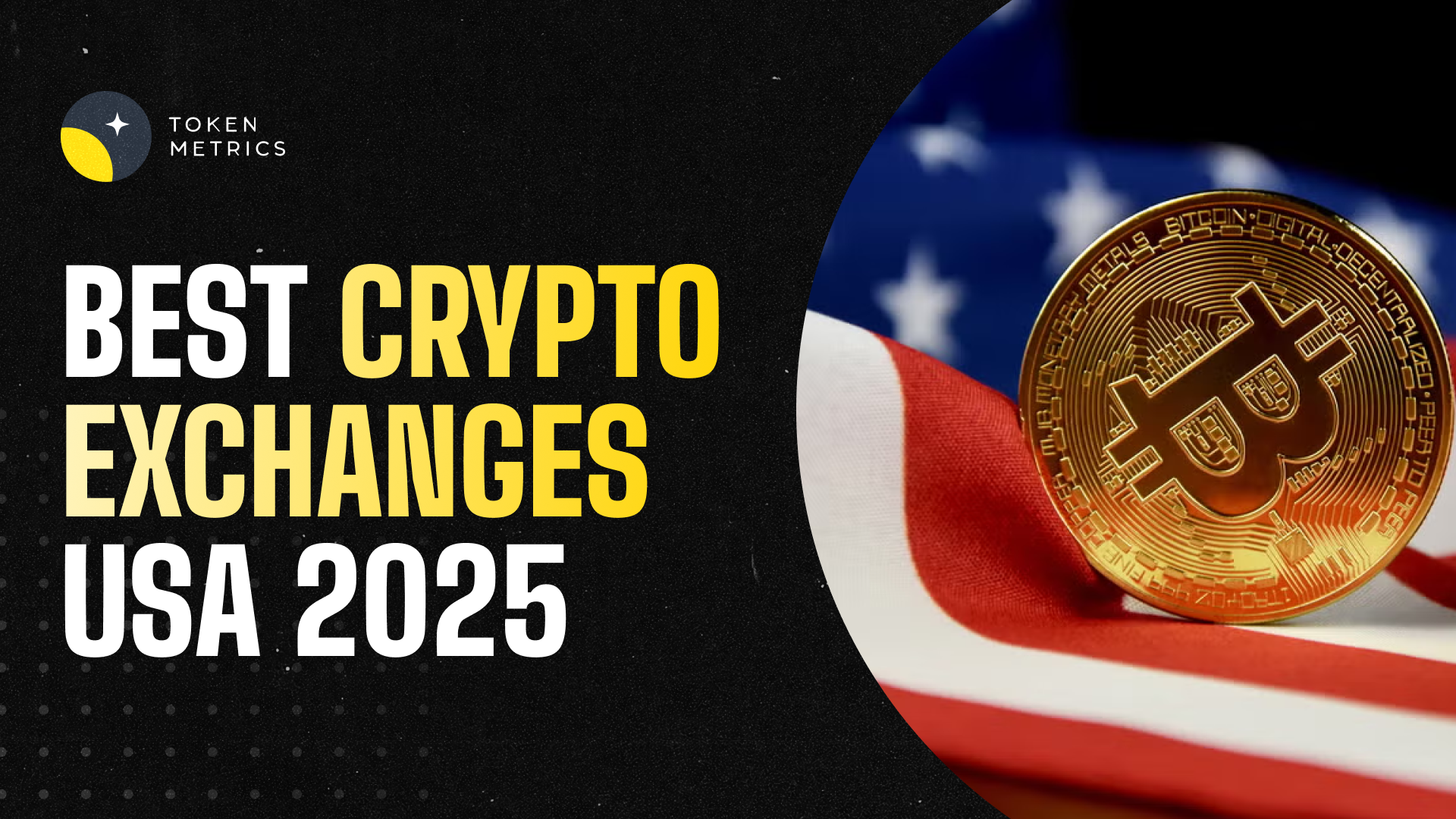


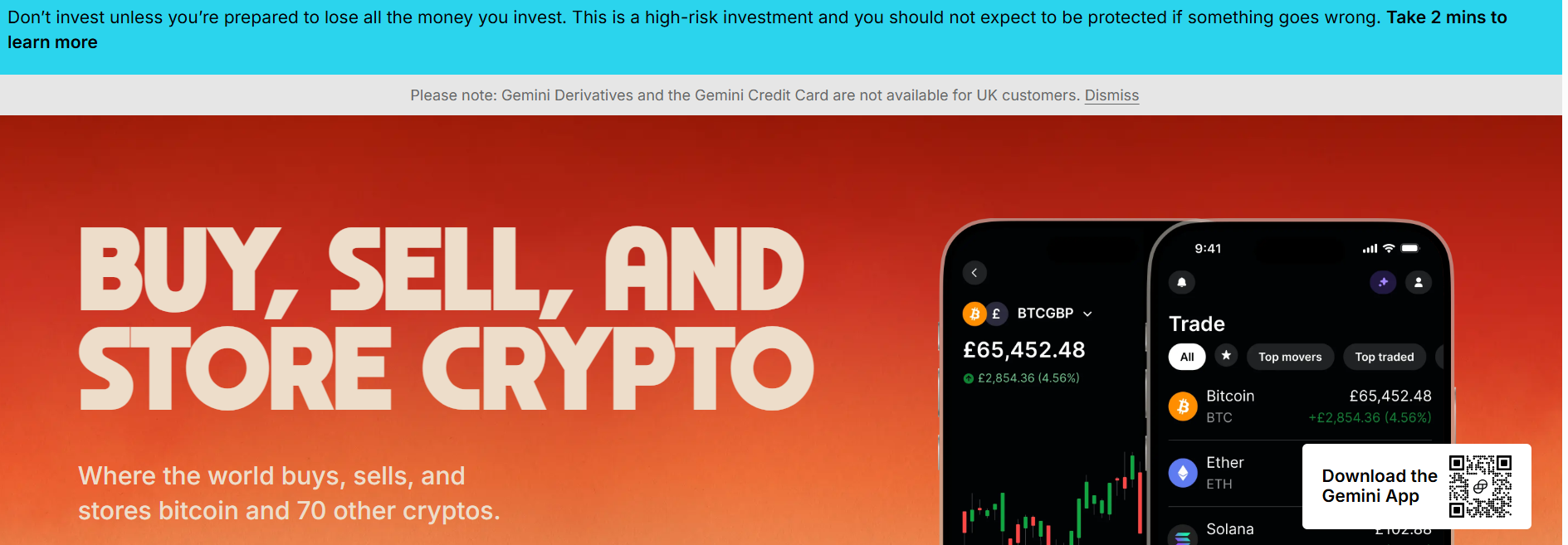


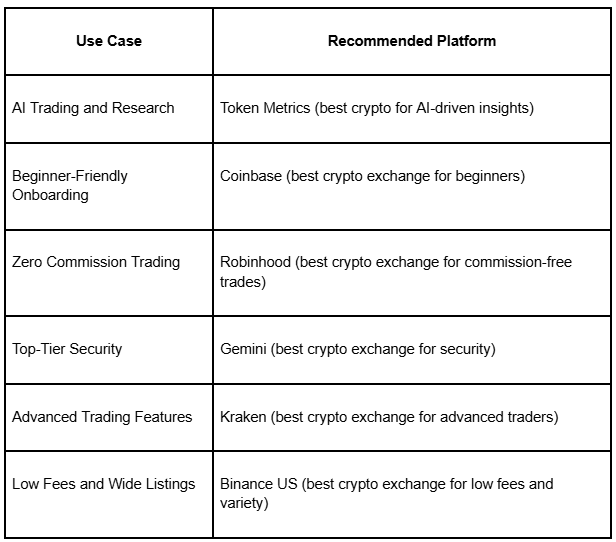
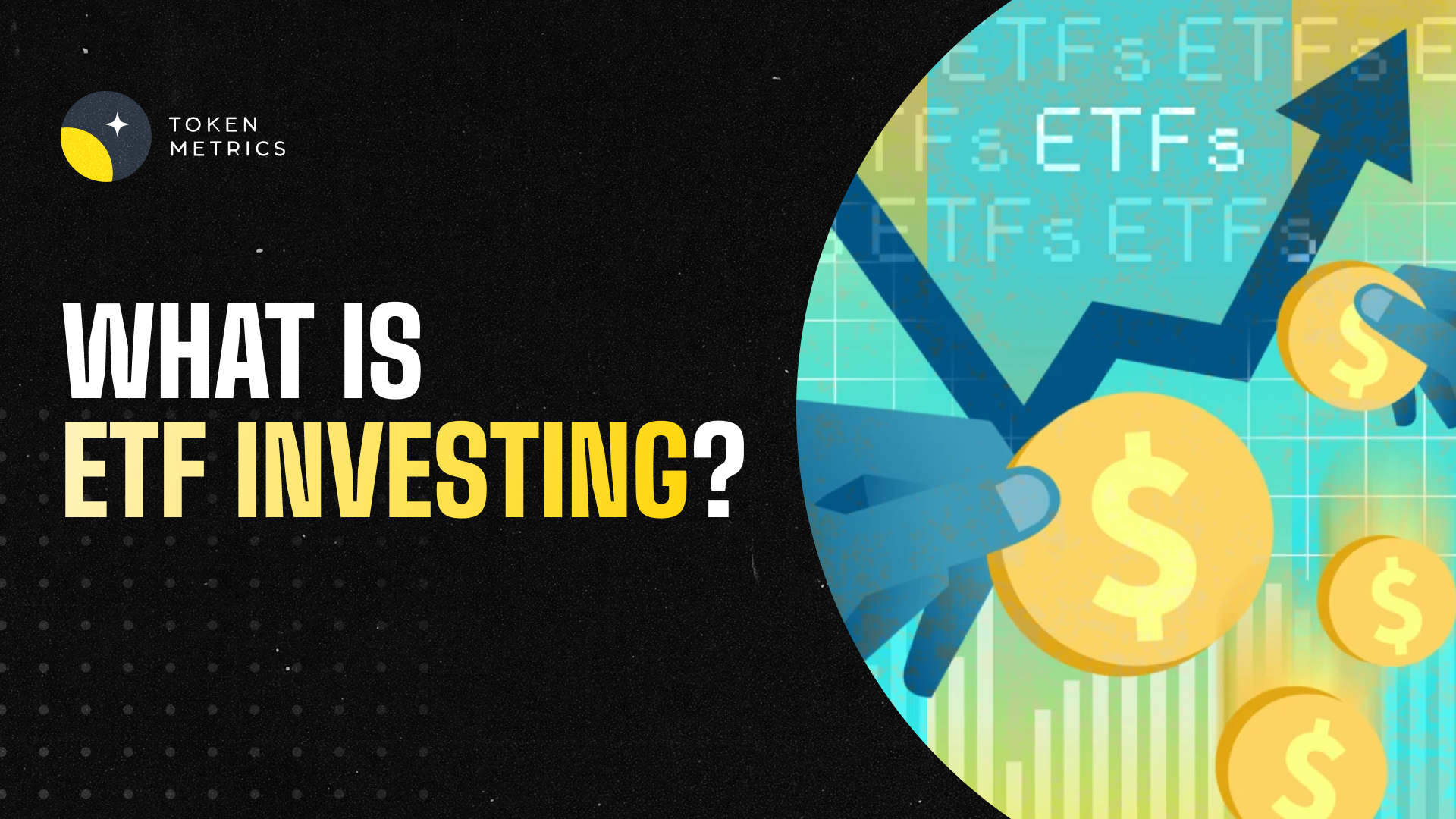

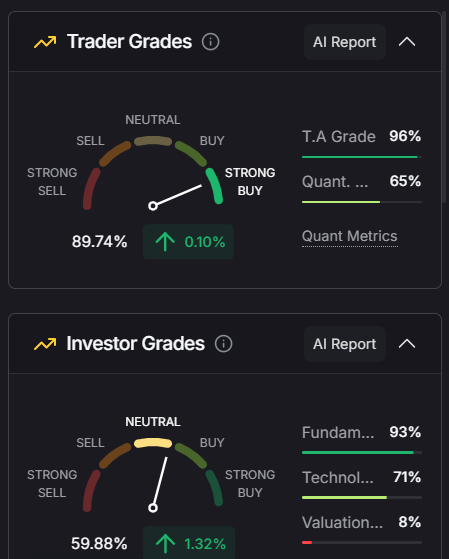

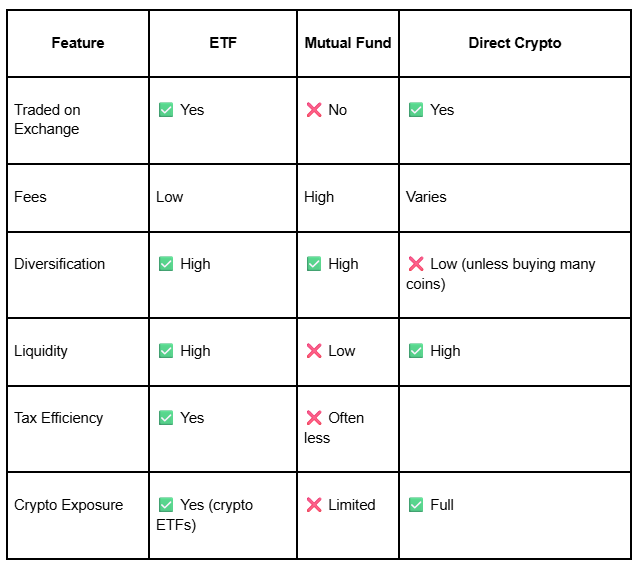




.svg)




.png)